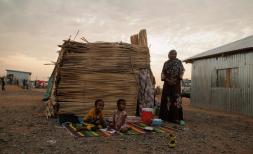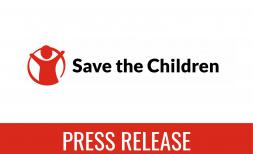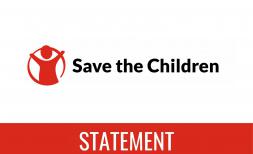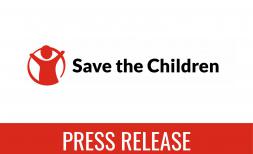Lebanon: children facing crisis hunger levels to rise by 14% in 2023 unless urgent action taken
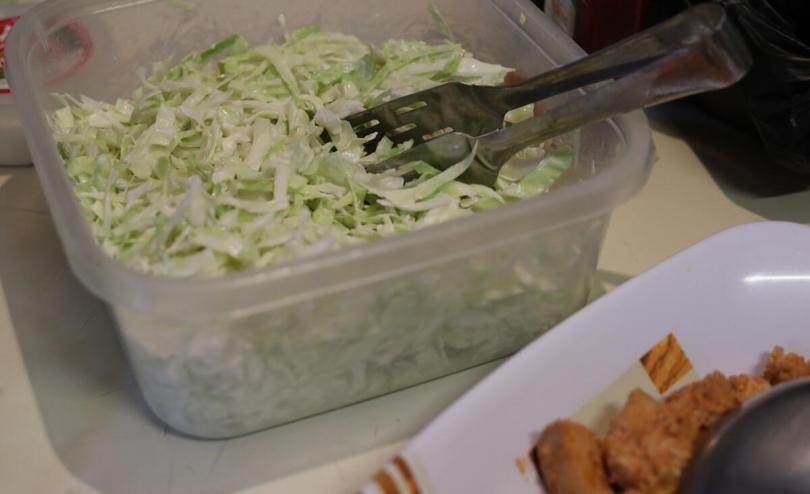
BEIRUT, 3 January 2023 – The number of children in Lebanon facing crisis levels of hunger is projected to increase by 14% early this year unless urgent action is taken, Save the Children warned today.
Four in 10 Lebanese and Syrian refugee children in the country currently face high acute food insecurity - Phase 3 and above in the IPC acute food security classification system - due to a food crisis caused by years of economic instability and fuelled by global climate and hunger shocks.
Already, figures from the first IPC (September-December 2022) acute food insecurity analysis conducted in Lebanon showed that 37% of the Lebanese and Syrian population in Lebanon are living with high acute food insecurity, with over 306,000 people facing severe lack of food access which could lead to starvation. This figure is expected to increase from 37% to 42% - including 354,000 in IPC Phase 4 - for the first quarter of 2023 if urgent action is not taken.
This makes Lebanon the sixth worst food crisis globally for share of population that is food insecure, after South Sudan, Yemen, Haiti, Afghanistan and Central African Republic.
The socio-economic crisis in Lebanon has pushed three-quarters of the population into poverty, with frequent power cuts, a disastrous cholera outbreak that has trickled across neighbouring countries and a worsening cash crisis deteriorating living conditions for millions of people.
Fadwa, a 38-year-old Lebanese mother of three in Beqqa told Save the Children, “We had to make sure we buy the cheapest essentials only. Our dependency is on grains and bread. We used to buy meat and or chicken on a weekly basis, now they are commodities we can’t afford. My children lost weight and energy.” Fadwa’s family received cash assistance from Save the Children to support her with household expenses.
Save the Children’s Country Director in Lebanon Jennifer Moorehead said:
“The crisis in Lebanon is increasingly a children’s crisis. The first five years of a child’s life are critical, and we fear that without enough nutritious food to eat, an increasing number of children will become malnourished, or even face starvation. Families are telling us they’re forced to skip meals or reduce the number of nutritious meals for their children. More needs to be done to prevent Lebanon from becoming the next tragic hunger emergency.”
Save the Children has been working in Lebanon since 1953. For over six decades, Save the Children has used rights-based approaches to increase access by children, adolescents, and youth to quality education; to strengthen child participation and protection at the family, school and community levels; and to increase food security and access to livelihood opportunities, clean water and proper shelter.
Notes to Editors
- The Integrated Food Security Phase Classification (IPC) is an internationally recognised global scale for classifying the severity and magnitude of food insecurity and malnutrition using existing data (mortality rates, GAM (Group Annuity Mortality), access to food and water, security, etc) to place geographical areas into categories. Acute food insecurity is classified in five phases: IPC Phase 1 is none/minimal, IPC Phase 2 is stressed, IPC Phase 3 is crisis, IPC Phase 4 is emergency, IPC Phase 5 is classified catastrophe/famine.
- Between September-December 2022, a total of 306,665 people (6%) is estimated to be in IPC Phase 4. Between January-April 2023, 47,000 people are estimated to shift from Phase 3 to Phase 4 reaching a total of 354,000 people (7%) in IPC Phase 4
- To calculate the percentage of children who are projected to be in hunger crisis (IPC Phase 3) in 2023, Save the Children used the number of people projected to be in IPC Phase 3 and above in Jan-Apr, and cross checked it with the UN’s population data. The share of children out of the total population in Lebanon, according to data from the World Population Prospects 2022, is 32.9%. We applied this percentage to the projected number of people in IPC Phase 3 and IPC Phase 4 in Jan-Apr 2023, which is 2,260,000, and came up with the following figure: 743,540. The current number of children classified in IPC Phase 3 and IPC Phase 4 is 652,736 so the increase to 743,540 is 14%.
- Lebanon is the sixth world food crisis globally as according to the newly published IPC figures, the country ranks number 6 in terms of the percentage of the population in phase 3+
For further enquiries please contact:
Samantha Halyk Samantha.halyk@savethechildren.org
Our media out of hours (BST) contact is media@savethechildren.org.uk / +44(0)7831 650409
Please also check our Twitter account @Save_GlobalNews for news alerts, quotes, statements and location Vlogs.
